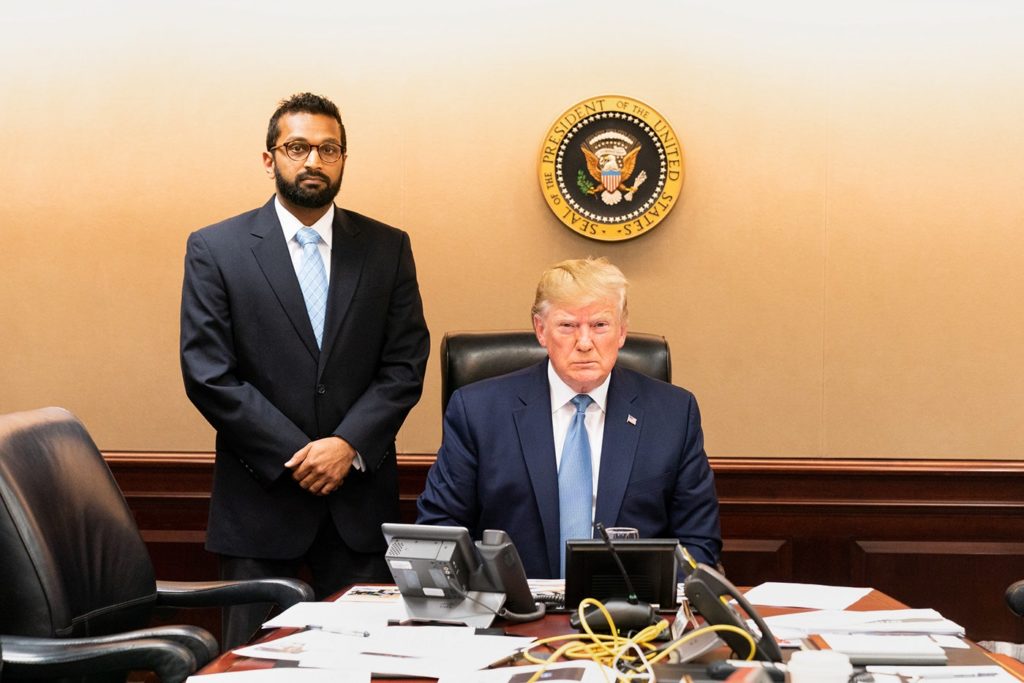The Kash Patel saga

This David Ignatius piece in the WAPO is just bonkers. Ignatius has a lot of connections among the American intelligence agencies, and it’s evident that some of them really want this story out there.
The final chapter in this strange saga was Trump’s brief effort in December to remove Haspel at CIA and replace her with Patel. Haspel’s apparent crime was that for months she had been resisting efforts by Trump and Patel to declassify the information he had gathered for Nunes back in the 2018 report. Patel told RealClearInvestigations that Haspel had personally “thwarted” this push for disclosure of the report he had prepared for Nunes. “The CIA has possession of it, and POTUS chose not to put it out,” Patel said.
An account of the final campaign to oust Haspel was compiled from several sources with close knowledge of events.
Patel was traveling in Asia with Miller when he was abruptly recalled to Washington on Dec. 8. Rumors were flying that he was being considered as a possible replacement for Wray at FBI or Haspel at CIA. On Dec. 12, while Trump was attending the Army-Navy football game, he discussed with top aides a sensitive future assignment for Patel, one person recalled.
Trump’s plan unfolded days later when Haspel visited the White House to attend the president’s daily intelligence briefing. After the briefing, she was approached by Chief of Staff Mark Meadows, who told her that Trump intended to fire CIA Deputy Director Vaughn Bishop and install Patel in his place.
Haspel balked. She said that she would resign rather than accept Patel as her deputy. She said she would like to deliver her resignation directly to the president. Meadows disappeared and returned a few minutes later to say that the president had changed his mind: Bishop wouldn’t be fired; Patel wouldn’t be sent to the agency; Haspel would remain as director.
Reviewing this long, tangled tale, three themes stand out. The first is that Patel was an important, if largely invisible, operative in Trump’s efforts to control the intelligence community, in an escalating series of moves from 2017 to 2020. The second is Trump’s campaign to redirect intelligence agencies, backed by Patel, was thwarted by a group of senior administration officials — a group that included, at various times, Milley, Esper, Haspel, Barr, Pompeo, White House counsel Pat Cipollone and, at the very end, Meadows.
The third takeaway is the most perplexing and, in an odd way, reassuring. The truth is that for all the roadblocks these aides put in Trump’s way, he had the authority as commander in chief to do what he wanted in national security: declassify and release documents, hire and fire people, direct agencies to take actions he wanted. Facing resistance from courageous officials who sought to protect the government, Trump in many cases simply backed down.
As bad as this story was, in other words, it could have been much worse.
Patel is a young lawyer, with zero qualifications for a high ranking IC job, let alone CIA director [!], who wormed his way into Trump’s inner circle via being Devin Nunes’s Roy Cohn.
The Ignatius piece at least suggests that what was going on last December was that Trump was actively planning a coup, to be carried out via the IC and the military, and that he didn’t pull it off in large part because he was simply too lazy and cowardly to fire the people who needed to be fired so they could be replaced by flunkies like Patel.
We still have no real idea what happened in the White House between the night of November 3rd and the afternoon of January 6th, but it seems increasingly clear that “the system” just barely held, and that Republicans are plotting even now to make sure it doesn’t the next time around.


